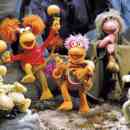Movie review: Glass
M. Night Shyamalan’s latest is a self-conscious collage of comic book form and personal conceit that talks down to the viewer as the director congratulates himself.
Glass
1/5
Starring: James McAvoy, Samuel L. Jackson, Sarah Paulson, Bruce Willis
Directed by: M. Night Shyamalan
Running time: 2hrs 9 mins
Rating: PG-13
By Katherine Monk
M. Night Shymalan wanted us to know it took him 19 years to make Glass. So I apologize for smashing it to smithereens in the next few moments. Nineteen years is a long time. But the two hours and nine minutes I spent watching Glass almost felt longer.
The itch of irritation started even before the first frame of the movie began. Shaymalan inserted a title card telling us how long it took to bring Glass to the screen before the promotional screening, as though it would make his latest movie feel like a true achievement, a battle won against all odds, through love and labour.
The only thing it really puts across is an irritating self-awareness and desire for self-grandeur. After all, it’s not like we can’t put the pieces together from the bits of marketing issued by the studio to whet our appetites. They showed us clips of Mr. Glass (Samuel L. Jackson) and David Dunn (Bruce Willis) from the 2000 movie Unbreakable, united with The Beast (James McAvoy) from 2016’s Split. Shyamalan wanted us to know he had a master plan the whole time: a concept for a superhero franchise where naturally gifted humans are present in society, yet discouraged from expressing their true talents.
Is your mind blown?
Ever since The Sixth Sense “surprised” the world with its “twist” ending at the turn of the millennium, Shyamalan has tried to shroud all his projects in the same gauzy fabric of seductive secrecy. He’s also consistently used the same shooting style in a delirious bid to rank himself a Hitchcock.
Ever since The Sixth Sense “surprised” the world with its “twist” ending at the turn of the millennium, Shyamalan has tried to shroud all his projects in the same gauzy fabric of seductive secrecy. He’s also consistently used the same shooting style in a delirious bid to rank himself a Hitchcock.
Yet, Hitchcock didn’t draw his inspiration from comic books. He took it from real life, and real fears. He translated primal terror into images that etched themselves into the collective unconscious.
Shyamalan attempts to do the opposite: Pull the subconscious into the frame (often borrowing cinematically from others) into the hopes of prompting terror. There’s no denying he has a style all his own, but it’s one that flattens, subdues, mutes and essentially crushes the life out of everything before the lens.
It worked beautifully in The Sixth Sense. The guy was (plot spoiler) dead. The fuzzy shadows, the washed-out greys, the overall blur captured the afterlife dreamscape. It doesn’t translate as well into the highly saturated world of ink and spandex, but once again, Shaymalan tries to explain himself — literally — through scripted scenes that force us to compare comic book fantasy to his contrived, muddy reality.
There’s no denying he has a style all his own, but it’s one that flattens, subdues, mutes and essentially crushes the life out of everything before the lens.
It all smacks of so much self-importance that I started laughing in the middle of an earnest speech by Sarah Paulson as the saucer-eyed psychiatrist, and finally gave a groan after watching one character die a dozen deaths.
Poor James McAvoy. He gives the same great acting clinic he offered in Split, but for all his thespian muscle flexing, the performance doesn’t land the same punch. Poor Bruce Willis, forever paying back the karma on Sixth Sense, only to reprise a dull thud of a character from a critical dud. And poor Samuel L. Jackson. You don’t see him until the half hour mark, and you don’t hear him speak until the finale. Why they named the movie after his character is a mystery, and perhaps the only one in this laborious trudge through the familiar, littered with trivial asides parading as profundity.
The faux-intellectual clutter contaminates the whole experience. It’s where you feel Shymalan’s gnawing presence. His need to feel smart. His utter conceit in every overly written scene. It would all be forgivable if it weren’t so condescending and stubbornly serious. Yet, not even Shyamalan’s on-screen cameo seems to leaven this doughy clump of nonsense because he can’t actually laugh at himself.
It would all be forgivable if it weren’t so condescending and stubbornly serious. Yet, not even Shyamalan’s on-screen cameo seems to leaven this doughy clump of nonsense because he can’t actually laugh at himself.
This 19-year labour of love is the realization of his own childhood superhero fantasy: That he is special. That he is gifted. That gods walk among us, and perhaps, he is one of them. He’s thought a lot about it, because he’s created a universe and a lot of cheesy dialogue that reaffirms this very premise. Yet, without a palpable shred of honest humour. Not inside jokes or sarcastic asides, but the kind of humour that comes from an honest acceptance of how small and flawed we are; The Human Comedy. Without it, even superheroes fall flat.
Main image: Samuel L. Jackson and James McAvoy star in M. Night Shyamalan’s Glass. Courtesy of Universal.
THE EX-PRESS, January 18, 2019
-30-



No Replies to "The pain of Glass"